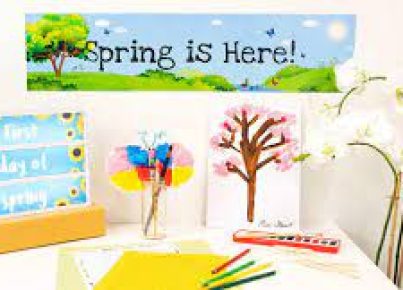On March 27th, the curtains rise to celebrate World Theatre Day, a time to recognize and promote the importance of theatre in all its forms across the globe. This day offers a unique opportunity for schools and educational institutions to introduce students to the magical world of performing arts through various classroom activities that inspire creativity, enhance communication skills, and foster a greater appreciation for cultural diversity.
Drama Workshops
A drama workshop is a fantastic way to plunge students into the world of theatre. Encourage them to participate in improvisation exercises, script readings, or mime practices. This not only sparks their imaginations but also improves their ability to express emotions and ideas without the barrier of scripted lines.
Playwriting Sessions
Invite students to pen their own short plays or scenes. This activity can be done individually or in groups, allowing for peer collaboration. Discuss plot development, character creation, and dialogue. Once their masterpieces are complete, they can perform the plays in front of the class or for a school assembly.
Set and Costume Design
Theatre is not just about acting; it’s also about the visual elements that bring a story to life. Organizing an art project focused on set and costume design teaches students about the importance of visual storytelling. They can draw or craft mini set models or create costume designs for different characters from famous plays.
Theatre Games
Incorporate theatre games into your lesson plans. Games such as “Freeze Frame” where students must create tableaux vivants (living pictures) depicting different scenes, or “Emotion Party” where each participant enters a scene displaying a distinct emotion, teach about body language and expression in a fun and interactive way.
Historical Theatre Chronology
Develop a timeline of theatre history that covers major periods like Greek tragedy, Commedia dell’arte, Shakespearean drama, and modern theatre movements. Assign each student a period to research and present on how societal changes influenced theatrical forms.
Guest Speakers
Invite local actors, directors, or playwrights to speak with students about their experiences in the field of theatre and discuss various career paths one might pursue within the industry. Hearing firsthand accounts can be truly inspirational for potential future artists.
Shadow Puppetry
Exploring different cultural perspectives in theatre can be done through an activity like shadow puppetry – an art form popular in regions such as Indonesia and China. Students can craft their own shadow puppets and perform short narratives using a backlit screen.
International Play Reading
For older students particularly interested in literature and drama theory, organize reading sessions that feature plays from around the world. This will expose them to diverse storytelling techniques and themes, broadening their understanding of global theatrical traditions.
By engaging in these dynamic classroom activities on World Theatre Day, educators have the power to instill a lifelong love for the arts while contributing to children’s holistic growth. Through theatre education, we prepare students not only to become future patrons of the arts but also empathetic global citizens able to think critically and creatively about the world around them.





